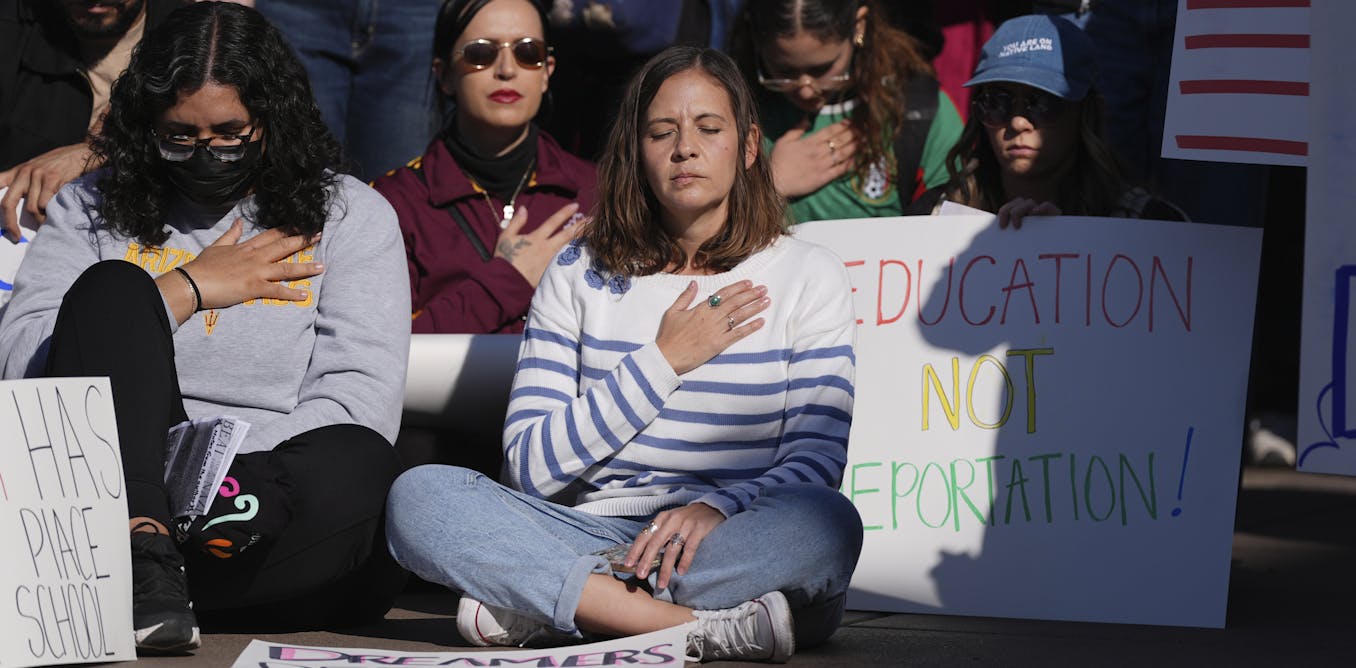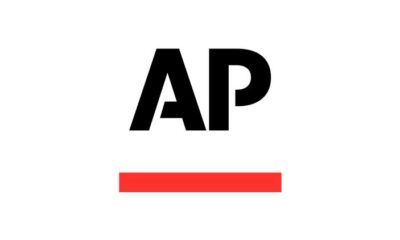Education
Legal Challenges Threaten College Access for Undocumented Students

The complex legal landscape surrounding undocumented students in the United States is becoming increasingly fragmented, creating significant barriers to higher education. Recent actions by the Trump administration and various state governments have intensified challenges for these students, many of whom are already struggling to navigate a system rife with legal uncertainties and financial obstacles.
In January 2025, students at Arizona State University protested against a Republican student group advocating for the reporting of undocumented peers to Immigration and Customs Enforcement (ICE). This incident highlights the heightened anxiety among undocumented students amid a shifting political climate that threatens their educational aspirations.
The Department of Justice has taken legal action against several states, including Oklahoma and Kentucky, over laws that previously allowed undocumented students to access in-state tuition rates. In August 2025, the DOJ sued Oklahoma for its legislation that permitted undocumented students to pay lower tuition rates, similar to in-state residents. Following this, Texas, Kentucky, and Minnesota faced similar lawsuits regarding their tuition policies. Texas and Oklahoma have since announced the end of in-state tuition for undocumented students, significantly raising the cost of higher education for many.
Currently, there are an estimated 408,000 undocumented students enrolled in U.S. colleges and universities, constituting approximately 2% of the total college population. The largest concentrations of these students are found in California and Texas, where about 21% and 14% of undocumented college students reside, respectively. These figures may not fully represent the actual numbers due to the lack of comprehensive tracking.
The obstacles these students face extend beyond tuition. They are ineligible for federal student aid, which is a significant barrier given that most students rely on financial assistance to afford college. In the U.S., 22 states and Washington, D.C. permit undocumented students to access in-state tuition, while 14 states offer state-based financial aid. Conversely, states like Wisconsin and Oklahoma have enacted laws that prevent undocumented students from receiving in-state tuition, further complicating their educational pursuits.
Merit-based scholarships present another challenge. Many programs require students to have lawful immigration status, which excludes a significant number of undocumented applicants. While some public colleges in California and Washington state offer scholarships to undocumented students, the overall landscape remains uneven.
In three states—Georgia, Alabama, and South Carolina—undocumented students are barred from applying to most public universities due to prohibitive policies. Other states, such as California, provide avenues for undocumented students to apply for state-based financial aid, yet the restrictive policies in certain regions limit opportunities significantly.
Undocumented students often grapple with higher levels of poverty compared to their documented peers, making the rising costs of tuition even more daunting. The anxiety surrounding their legal status exacerbates these challenges, particularly under the current administration’s stringent immigration enforcement policies. Many undocumented students are weighing whether to defer or abandon their college plans altogether due to fears of deportation or family separation.
According to Vanessa Delgado, an expert on the educational experiences of Latino families, the environment created by the Trump administration has led to increased caution among undocumented students. Many fear that pursuing education far from home could lead to family members being targeted for deportation. Students in Texas, previously benefitting from in-state tuition, are now facing the prospect of paying out-of-state rates, which can double their tuition expenses.
The abrupt policy changes in Texas and similar rollbacks in states like Florida have made it increasingly difficult for undocumented students to envision a pathway to higher education. As the landscape continues to evolve, students and educational institutions are left to navigate a challenging and often hostile environment.
The implications of these legal battles extend beyond education, affecting the future workforce and the broader societal fabric. With fewer undocumented students pursuing higher education, the potential contributions of these individuals to society and the economy may be diminished.
As the situation develops, the need for comprehensive solutions that address the legal and financial hurdles faced by undocumented students becomes more pressing. The future of these students hangs in the balance as they navigate a fragmented and often discriminatory landscape in pursuit of their educational goals.
-

 Technology5 months ago
Technology5 months agoDiscover the Top 10 Calorie Counting Apps of 2025
-

 Health3 months ago
Health3 months agoBella Hadid Shares Health Update After Treatment for Lyme Disease
-

 Health3 months ago
Health3 months agoErin Bates Shares Recovery Update Following Sepsis Complications
-

 Technology4 months ago
Technology4 months agoDiscover How to Reverse Image Search Using ChatGPT Effortlessly
-

 Technology1 month ago
Technology1 month agoDiscover 2025’s Top GPUs for Exceptional 4K Gaming Performance
-

 Technology3 months ago
Technology3 months agoElectric Moto Influencer Surronster Arrested in Tijuana
-

 Technology5 months ago
Technology5 months agoMeta Initiates $60B AI Data Center Expansion, Starting in Ohio
-

 Technology5 months ago
Technology5 months agoRecovering a Suspended TikTok Account: A Step-by-Step Guide
-

 Health5 months ago
Health5 months agoTested: Rab Firewall Mountain Jacket Survives Harsh Conditions
-

 Lifestyle5 months ago
Lifestyle5 months agoBelton Family Reunites After Daughter Survives Hill Country Floods
-

 Technology5 days ago
Technology5 days agoOpenAI to Implement Age Verification for ChatGPT by December 2025
-

 Health3 months ago
Health3 months agoAnalysts Project Stronger Growth for Apple’s iPhone 17 Lineup



















